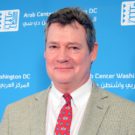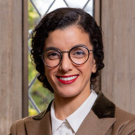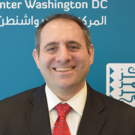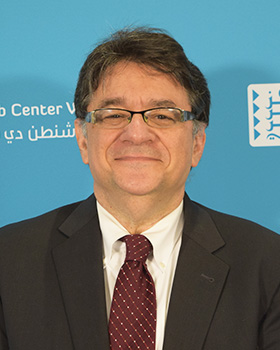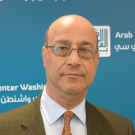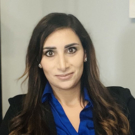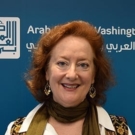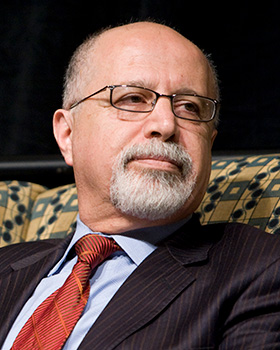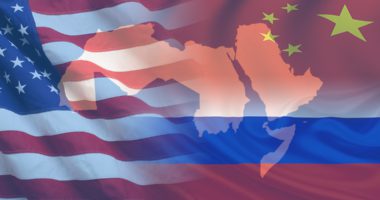
Speakers

Sahar Aziz
Professor of Law, Chancellor's Social Justice Scholar, and Middle East and Legal Studies Scholar
Rutgers University Law School

Tareq Baconi
Senior Analyst, Israel/Palestine and Economics of Conflict
International Crisis Group
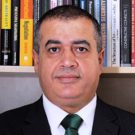
Ibrahim Fraihat
Associate Professor in International Conflict Resolution
Doha Institute for Graduate Studies

Ilan Goldenberg
Senior Fellow and Director, Middle East Security Program
Center for a New American Security

Nader Hashemi
Director of the Center for Middle East Studies
Josef Korbel School of International Studies, University of Denver

Harith Hasan
Nonresident Senior Fellow
Malcolm H. Kerr Carnegie Middle East Center
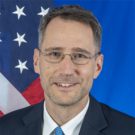
Joey Hood
Principal Deputy Assistant Secretary of State for Near Eastern Affairs
US Department of State
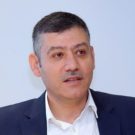
Marwan Kabalan
Director of the Unit for Policy Studies
Arab Center for Research and Policy Studies, Doha, Qatar

Dalia Dassa Kaye
Senior Fellow, UCLA Burkle Center
Former Director of the RAND Center for Middle East Public Policy

Alexandra Kuimova
Researcher with the SIPRI Arms and Military Expenditure Programme
Stockholm International Peace Research Institute

Helen Lackner
Visiting Fellow
European Council for Foreign Relations

Camille Lons
Research Associate – Middle East
International Institute for Strategic Studies

Shana R. Marshall
Associate Director of the Institute for Middle East Studies
Elliott School of International Affairs
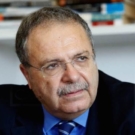
Tarek Mitri
Former Special Representative and Head of the United Nations Support Mission in Libya
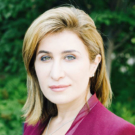
Bessma Momani
Professor of Political Science
University of Waterloo
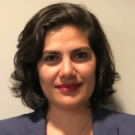
Negar Mortazavi
Journalist, Analyst, and Host of the Iran Podcast

Kenneth Roth
Executive Director
Human Rights Watch

Hanan Salah
Libya Director
Human Rights Watch

Sherene Seikaly
Associate Professor of History
University of California, Santa Barbara

Barbara Slavin
Director of the Future of Iran Initiative
Atlantic Council

Rachel Stohl
Vice President of Research Programs
The Stimson Center

Sarah Leah Whitson
Executive Director
Democracy for the Arab World Now (DAWN)

Karen Young
Senior Fellow and Founding Director of the Program on Economics and Energy
Middle East Institute
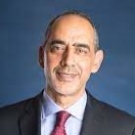
Tarik Yousef
Nonresident Senior Fellow, and Director
Brookings Doha Center
Moderator

Marwan Bishara
Author and Columnist
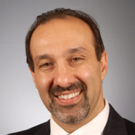
Mehran Kamrava
Professor of Government
Georgetown University - Qatar
About the Conference
As the United States exits Afghanistan and prepares to scale back its involvement in the Middle East, global powers such as Russia and China are working to increase their influence in the region. Such Great-Power competition is testing American influence and global engagement as a resurgent Russia and a rising China vie for power and influence through diplomatic, military, and economic means. They continue to exploit regional crises and opportunities to advance their objectives and strengthen their footholds across the Middle East and North Africa.
Arab Center Washington DC’s sixth annual conference, titled “US Policy and Global Competition in the Middle East,” will assess the US role and objectives in the region under the Biden Administration during the current dynamic shifts in power and alliances. Speakers will also probe the impact of these overarching transformations on issues of human rights and democracy, energy and geopolitical influence, arms sales and economic clout, involvement in regional conflicts including Libya, Syria, and Yemen, and policies toward Palestine/Israel and Iran.
Conference Agenda
Day 1: Tuesday September 14, 2021
WELCOME AND INTRODUCTORY REMARKS
Speaker
Khalil E. Jahshan, Executive Director, Arab Center Washington DC
PANEL I
Empowering Authoritarianism: Impact of Global Competition on Democracy and Human Rights in the Middle East
Speakers
Sahar Aziz, Professor of Law; Chancellor’s Social Justice Scholar; Middle East and Legal Studies Scholar, Rutgers University Law School
Nader Hashemi, Associate Professor; Director of the Center for Middle East Studies, Joseph Korbel School of International Studies, University of Denver
Kenneth Roth, Executive Director, Human Rights Watch
Sarah Leah Whitson, Executive Director, Democracy for the Arab World Now (DAWN)
Moderator
Daniel Brumberg, Associate Professor and Director of Democracy and Governance Studies, Georgetown University; Nonresident Fellow, Arab Center Washington DC
PANEL II
Energy Diplomacy and Geopolitical Influence in the Middle East
Speakers
Camille Lons, Research Associate – Middle East, International Institute for Strategic Studies (IISS)
Bessma Momani, Professor of Political Science and Assistant Vice-President, Research and International in the Office of Research, University of Waterloo
Karen Young, Senior Fellow and Founding Director of the Program on Economics and Energy, Middle East Institute (MEI)
Tarik Yousef, Nonresident Senior Fellow in the Foreign Policy Program and Director, Brookings Doha Center
Moderator
Shibley Telhami, Anwar Sadat Professor for Peace and Development, University of Maryland; Academic Advisory Board Member, Arab Center Washington DC
Day 2: Wednesday September 15, 2021
KEYNOTE ADDRESS
Arab Expectations of US Policy in the Middle East: Hopes and Realities
Keynote Speaker
Ibrahim Fraihat, Associate Professor in International Conflict Resolution, Doha Institute for Graduate Studies
Moderator
Tamara Kharroub, Assistant Executive Director and Senior Fellow, Arab Center Washington DC
PANEL III
Conflicts and Great Power Competition: Iraq, Libya, Syria and Yemen
Speakers
Harith Hasan, Nonresident senior fellow, Malcolm H. Kerr Carnegie Middle East Center
Marwan Kabalan, Director of the Unit for Policy Studies, Arab Center for Research and Policy Studies (ACRPS)
Helen Lackner, Visiting Fellow, European Council for Foreign Relations; Research Associate, SOAS University of London
Hanan Salah, Libya Director, Human Rights Watch
Moderator
Imad K. Harb, Director of Research and Analysis, Arab Center Washington DC
PANEL IV
Weapons Sales in the Middle East: Economics, Priorities, and Human Cost
Speakers
Charles W. Dunne, Nonresident Fellow, Arab Center Washington DC
Alexandra Kuimova, Researcher, Stockholm International Peace Research Institute (SIPRI)
Shana Marshall, Assistant Research Professor of International Affairs and Associate Director of the Institute for Middle East Studies, Elliott School of International Affairs, George Washington University
Rachel Stohl, Vice President of Research Programs and Director of the Conventional Defense Program, the Stimson Center
Moderator
Yara M. Asi, Post-Doctoral Scholar, University of Central Florida; Nonresident Fellow, Arab Center Washington DC
Day 3: Friday September 17, 2021
Priority Issues in US-Arab Relations: An Arab Perspective
Keynote Speaker
Tarek Mitri, Former Special Representative and Head of the United Nations Support Mission in Libya (UNSMIL); Former Lebanese Government Minister; President, St George University of Beirut
Moderator
Laurie King, Associate Professor of Anthropology, Georgetown University; Member of the Board of Directors, Arab Center Washington DC
US Policy Objectives in the Middle East: Official American Perspective
Keynote Speaker
Hon. Joey Hood, Principal Deputy Assistant Secretary of State for Near Eastern Affairs,
US Department of State
Moderator
Khalil E. Jahshan, Executive Director, Arab Center Washington DC.
PANEL V
US Policy on Palestine
Speakers
Tareq Baconi, Senior Analyst for Israel/Palestine and Economics of Conflict, International Crisis Group
Dana El Kurd, Non-resident Senior Fellow, Arab Center Washington DC; Assistant Professor, University of Richmond
Yousef Munayyer, Nonresident Fellow, Arab Center Washington DC
Sherene Seikaly, Associate Professor of History, University of California, Santa Barbara
Moderator
Marwan Bishara, Author and Columnist
PANEL VI
US Policy on Iran
Speakers
Ilan Goldenberg, Senior Fellow and Director of the Middle East Security Program, Center for a New American Security (CNAS)
Dalia Dassa Kaye, Senior Fellow, UCLA Burkle Center; former Director of the RAND Center for Middle East Public Policy
Negar Mortazavi, Journalist and Political Analyst; Host of The Iran Podcast
Barbara Slavin, Director of the Future of Iran Initiative, Atlantic Council
Moderator
Mehran Kamrava, Professor of Government, Georgetown University – Qatar; Head of Iranian Studies Unit, Arab Center for Research and Policy Studies (ACRPS)
Event Summary
Tuesday, September 14, 2021
On September 14, 2021, Arab Center Washington DC (ACW) held its sixth annual conference titled “US Policy and Global Competition in the Middle East.” ACW Executive Director Khalil E. Jahshan kicked off the conference with a welcoming address and remarks about the shifting US role in the Middle East and North Africa (MENA). He noted that as the United States completes its messy withdrawal from Afghanistan, it also prepares to scale back its influence in other parts of the region. The ACW conference, he continued, examines the situation on the ground in Afghanistan that the United States left behind, one that created a strategic vacuum which China and Russia as well as other countries—such as Iran, Pakistan, India, the Gulf states, and various central Asian countries—aspire to fill. Jahshan asked whether China and Russia will use their propaganda to reinforce the image of the US departure from Kabul as parallel to the US retreat from, and consequent fall of, Saigon in 1975.
Jahshan asserted that there are indeed many lessons to learn and implications to assess from the American military involvement in Afghanistan, and especially the US withdrawal from the country in August. For example, the Europeans wonder if they should continue to back US policies that support wars overseas, with NATO allies questioning if and how different the Biden and Trump administrations really are. For their part, many Arab regimes—which Jahshan described as “addicted” to a close security relationship with Washington—will view the Afghanistan retreat as an indication that they cannot trust the United States to come to their rescue in times of trouble. These states are now looking to bolster their security by cultivating new alliances with China and Russia, despite the fact that the Arab world has long-standing agreements with Washington, including US bases and military guarantees, and benefits from US arms training and logistical support. Arab leaders, he said, are worried about Biden’s “America Is Back” model, as the new administration redefines overall US national interests in the Middle East. Finally, Jahshan asked if the Biden doctrine will draw the curtain on American military interventionism in the Middle East. He then offered an overview of the panels and topics of ACW’s conference and welcomed the first panel of speakers.
Panel I: Empowering Authoritarianism: Impact of Global Competition on Democracy and Human Rights in the Middle East
ACW held a panel titled “Empowering Authoritarianism: Impact of Global Competition on Democracy and Human Rights in the Middle East.” The panelists were Sahar Aziz, Professor of Law at Rutgers University; Nader Hashemi, Associate Professor and Director of the Center for Middle East Studies at the University of Denver; Kenneth Roth, Executive Director of Human Rights Watch; and Sarah Leah Whitson, Executive Director of Democracy for the Arab World Now. Daniel Brumberg, Associate Professor and Director of Democracy and Government Studies at Georgetown University, and Nonresident Fellow at ACW, moderated the panel.
Nader Hashemi began the discussion by equating the United States and China in their dislike for democratic change both in the Middle East and around the world. In some cases, such as the Green Movement in Iran, they obviously differ, he said. Hashemi criticized President Joe Biden for reneging on promises he made during his presidential campaign to be a champion of democracy and human rights. He said that Arab authoritarian regimes and Israel are both equally guilty of violations of rights and Biden seems to look the other way. Hashemi brought up the issue of the so-called Abraham Accords between Israel and some Arab regimes, which he thinks are obscuring Israel’s violations of Palestinian national and human rights. He said that “it is not difficult to understand the idea that the existence of the Abraham Accords is fundamentally predicated on the perpetuation of authoritarian regimes and its concomitant opposition to democratization in the region.” In fact, he asserted, the more urgent threat in the Middle East is this Israeli-authoritarian collusion on subverting human rights. As for the United States, Hashemi said that the reason it supports authoritarianism is that Washington believes that such regimes are the best guarantee for security and stability. Referring to China and the region, he stated that it was indeed shocking that authoritarian regimes in the Organization of Islamic Cooperation not only were silent on China’s treatment of its Uighur minority, but that they took an active role in defending China’s policies. The reasons he said were the importance of economic relations with China, the countries’ affinity to the Chinese model of repressive government, and China’s supplying them with surveillance technologies to monitor their populations.
Sahar Aziz explained that the Middle East is a penetrated region, not only by the United States but also by China and Russia and others. She said that there is an understanding that whoever deals with Middle Eastern states has to contend with entrenched authoritarian regimes, civil wars (in Yemen, Syria, and Libya), unaccountable monarchies, and fragile democracies (such as Tunisia, which recently had a presidential coup). Aziz decried the state of weakness of parliaments and dysfunctional electoral processes that produce representative institutions subservient to repressive regimes. Competition for the region involves arms sales, access to hydrocarbon resources, and protection of Israel—but not promotion of democracy, which she said has proven to be a fraud. Aziz doubted that Russia is truly interested in controlling the Middle East; instead, she noted, President Vladimir Putin wants to advance his economy so he can promote himself domestically. She said that Russia has no wish to spread any ideology, including authoritarianism, and Putin is most concerned about what he calls the “near abroad.” She stated “that is really the top priority from a foreign relations perspective … Russia is really focusing more on its strategic interests and it does not have an ideological agenda.” As for China, Aziz stated that it is concerned most about its domestic economic expansion. It maintains a neutral foreign policy that is not focused on human rights, and its concentration on self-interest has been evident in Libya, Sudan, Syria, Iran, and the African continent.
Sarah Leah Whitson criticized the total absence of concern for democracy and human rights in the Middle East. She said that Tunisia has been quite a disappointment, Israel has become a true apartheid state, and Lebanon is a failed state. She noted that “Iraq and Iran are now closer contenders as democracies in the region in that at least we don’t know who the president or prime minister will be in advance of an election, and there is some semblance of political competition.” Whitson denounced Biden’s seeming abandonment of the promise to change the American approach to the Middle East; for example, the administration lifted conditions on arms shipments to Egypt despite the continuing flagrant violations of human rights there. In addition, there is no pressure on Israel to change its policies toward the Palestinians. Whitson said that Biden and his team, like others before them, keep talking about maintaining aid to Egypt as a way of ensuring Israel’s security; but the reality is that they are allies and are charting their own policies together. She stated that there are two connected myths: that Egypt is willing to reform, and that the United States is really concerned about it doing so. As for Israel, Whitson said that Biden brooks no change despite his knowledge that it has scuttled the two-state solution and pursued a farcical peace process. He does not even criticize the settlement policy. Ending on a positive note, however, Whitson said that there is more room today for advocacy to transform US policy in the Middle East. Popular interest and change within the Democratic Party may lead the way.
Kenneth Roth struck a slightly different tone on the idea of whether China and Russia are real competitors of the United States in the Middle East, and if they are winners by entering the region. He coupled that with discounting the negative impact of the US withdrawal from Afghanistan, saying that it will not affect US policy in the Middle East. China does have economic interests, he said, but it is not liked by the people of the region because it is known to support authoritarian regimes there. Russia, on the other hand, can use military force, as Syria and Libya showed, but it will always remain limited in its actions. Neither China nor Russia is rich or capable enough to take on a leading role in the Middle East, certainly not anywhere near that played by the United States. He said that Biden’s human rights policy has been a disappointment. “If you look at the reality, it is considerably short of [Biden’s pronouncements].” Roth added that “in Egypt … despite the horrendous human rights record, Biden just effectively threw out the human rights conditions that had been attached to this tiny part of US military assistance”; in effect, Sisi turned from being Trump’s “favorite dictator” to Biden’s “useful dictator.” On Israel, Biden’s stance was not even like that of traditional Israel supporters, such as Senator Bob Menendez and Representative Jerry Nadler, who deplored its actions against civilians in Gaza last May. Biden does not even seem to notice the apartheid state that Israel has become, and he was not hard on Saudi Arabia or its Crown Prince Mohammed bin Salman. Roth ended his presentation by saying that Biden was merely a rhetorical improvement over Trump on human rights; in reality, there is no difference between the two.
Panel II: Energy Diplomacy and Geopolitical Influence in the Middle East
Panel II featured four speakers: Camille Lons, who is a Research Associate-Middle East at the International Institute for Strategic Studies; Bessma Momani, Professor of Political Science and Assistant Vice-President, Research and International in the Office of Research at University of Waterloo; Karen Young, Senior Fellow and Founding Director of the Program on Economics and Energy at the Middle East Institute; and Tarik Yousef, Nonresident Senior Fellow in the Foreign Policy Program and Director of the Brookings Doha Center. The panel was moderated by Shibley Telhami, Anwar Sadat Professor for Peace and Development at the University of Maryland and an Academic Advisory Board Member at ACW.
Tarik Yousef offered a framework for thinking about energy diplomacy and the multiple challenges facing MENA. He said that in order to understand the future of the region’s economy, one needs to consider the fallout from the “pandemic recession” as well as examine the subsequent recovery for MENA and the world. Yousef described the immense damage and scarring across the region, noting that poverty has increased dramatically, more segments of populations have become vulnerable, and cohorts of youth “have probably been set back a decade” in term of socioeconomic development. In addition, he said that the foundations of social peace and stability in the region have been weakened, with public protection and assistance programs pushed to the brink. Governments have accrued massive debts that will come due. Yousef added that the International Monetary Fund’s assessment is that recovery in the Middle East is going to be slow, long, and incomplete, with the region emerging as a very different place, and both poor and rich economies have been affected. Yousef also stated that there is a new global agenda and consensus on climate change; unlike previous recessions, when the restoration of oil markets was important for the global economic recovery, there will be a fundamental energy production shift for all countries, with emphasis on renewable resources. It is also important to understand, he continued, the issues that were inherited from the period before the pandemic, such as regional rivalries and the geopolitical fragmentation of the Arab world over the last decade, which he asserted will have tremendous impact on the economic recovery.
Karen Young centered her remarks on how the current energy transition might affect oil and gas producers in MENA. She said this is a period of disruption and change, one of “the most volatile energy price periods in recent history.” Natural gas prices are at an all-time high, electricity demand is surging, supply outages are common, the pandemic recovery is slow, and general hostility toward hydrocarbon producers is increasing, although ambivalence prevails as to how to replace them. Young asserted that one of the United States’ key misunderstandings of Middle East energy producers is related to the connections between the two sides. For that reason, she said, there is a movement toward American disengagement from the region. Nevertheless, and even though the United States needs less oil to grow now, owing to more efficient methods of oil use over the last 50 years, it still requires oil and gas. Developing economies have also become more efficient, she added, but they will still have high domestic demand for new oil and gas resources. At present, Middle East producers are pivoting toward the East and to poor countries with high populations; they are catering to a rising consumer class that demands more electricity for the foreseeable future. To be sure, she continued, there needs to be a focus on renewable energy production, which will require capital expenditure and new investment, but “this is where the rich world and the developing world have parted ways,” Young explained. In addition, she said that international oil companies are under tremendous pressure to demonstrate less reliance on fossil fuel production. Governments and other entities are increasingly willing to be more open regarding energy policies, but politics plays a role. As for the United States, she added, it “has never been so disengaged from its own understanding of why the energy transition in MENA should matter to [Americans].” In fact, she said, in the next decade, there will be sharper inequities between oil and gas producers in the region and fewer windows of opportunity for new exploration and agreements to maximize profits from these resources.
Bessma Momani began by saying that “oil is ultimately tied to everything we do” and that so much of US-Middle East relations have centered around oil. To illustrate this historical reality, she recalled a quote by Lawrence Korb, a former assistant US secretary of defense, about the Iraqi invasion of Kuwait and the subsequent US military involvement there, that “If Kuwait grew carrots we wouldn’t give a damn.” The current uncertainty in the global economy, and the concomitant stalled growth, she explained, heavily hinge on broken supply chains. This spurs producers of merchandise and oil to seek local production avenues instead of relying on transportation and pipelines for goods to travel from afar. Even if we return to pre-pandemic production levels, Momani added, there are still lasting changes that have been brought on by the pandemic. For example, remote work has taken hold, which has ramifications for office culture and where people live. Some things will not go back to “normal,” she affirmed, and it will change our consumption habits. The new generation, in particular, cares deeply about the environment and is assertive in its approach; these are attitudinal and societal changes, Momani said, that will ensure the forward movement of change. And with decreasing reliance on Middle Eastern oil—and oil in general—the region will not be relevant to the United States in the same way. In fact, she continued, renewable energy technologies are getting better and cheaper and pressure on companies to explore such sources of energy will produce very rapid advancement in this field which will make it more affordable.
Camille Lons examined the role of the Red Sea and how it fits into the picture of energy and energy diplomacy in the MENA region. She said that the geopolitics of the Red Sea have been shaped by many important issues, though the area has been viewed as a marginal border region for ships that aim to bypass the Strait of Hormuz. Lons explained the significance of the Red Sea as an energy corridor and a key waterway. Since a growing share of Gulf energy resources is going eastward to Asia, there is now less traffic in the Suez Canal; however, the Red Sea route, which increasingly affords traffic to travel southward, remains relevant. The emphasis for the United States and Europe has traditionally been on energy security and freedom of navigation in the Red Sea, especially with curbing piracy; now the United States is trying to depoliticize the Red Sea, but the problem here, Lons said, is that because efforts have been focused on freedom of navigation, there has been a neglect of how countries bordering the Red Sea work with each other. Therefore, cycles of instability and great power competition in the area have not been addressed well, which creates new maritime security challenges as cycles of violence, failed states, and active conflicts and political transitions foment new and unaddressed types of instability. The resurgence of great power competition in the Red Sea with the continuing influence of Russia and the emerging Chinese presence make it important for the United States to stop ignoring this region, which Lons described as one of the most militarized in the world. Indeed, the naval presence of western powers in the region is shifting from targeting piracy to increasingly dealing with great power rivalry dynamics. She added that China is watching US activities in the Red Sea closely, explaining that China’s interests are less and less about energy security and more about controlling access and gaining influence.
Wednesday, September 15, 2021
Keynote Speaker: Ibrahim Freihat
On September 15, ACW’s Assistant Executive Director Tamara Kharroub introduced keynote speaker Ibrahim Freihat, Associate Professor in International Conflict Resolution and Dean of Student Affairs at the Doha Institute for Graduate Studies, to discuss “Arab Expectations of US Policy in the Middle East: Hopes and Realities.” Freihat framed the issue in the context of the US withdrawal from Afghanistan at a time when MENA remains in a state of flux and transition. He highlighted five specific implications of the withdrawal that could be considered impactful on states in the region.
The first implication is that by withdrawing from Afghanistan in the manner it did, the United States has sent a message that it does not really care about the vulnerabilities besetting its friends and allies in the Middle East. In addition to Afghanistan, Freihat mentioned Iraq and the Palestinian Authority as vulnerable allies that the United States may abandon at a time of its choosing without even consulting with them. And like the Afghan government, they will collapse as soon as the United States leaves them to their fortunes. A second and related implication is that the United States will be perceived as willing to sacrifice its allies when the moment is opportune. Freihat asserted that “Kabul fell not in August 2021 with the American withdrawal on August 15. Kabul fell back in February 2020 when the Trump Administration signed the Doha agreement with the Taliban excluding their own ally,” the Afghan government.
Third, according to Freihat, is that the US withdrawal leads to emboldened adversaries, whether they are Russia or Iran. Russia may understand the US withdrawal as an opportunity to increase its involvement in Libya and Syria, which will impact US policy in the Middle East. Tehran, on the other hand, might ask why it has to expend time, effort, and energy to negotiate with Washington over its nuclear program if the United States cannot defeat a militia like the Taliban. Fourth, Freihat highlighted the disappointment of Arab liberals who have counted on the United States to be in their corner as they fight for democracy and human rights. He said that Washington is telling Arab liberals that “you are on your own” in their fight with repressive regimes, with which former President Trump built alliances and arrangements. Freihat added that Biden does not seem sincere about calling for and supporting human rights and democracy, noting that the president is telling liberals “We are not supporting dictators, but we are not fighting dictators either.”
The final implication of the US withdrawal is the Biden Administration’s dismissiveness of the importance of the Palestine question. He said that there is no credibility in the US position on Palestine. Freihat opined that it was good that Biden stopped Trump’s headlong rush to give Israel whatever it wanted; however, he did not reverse any of Trump’s policies. Not even the US consulate in Jerusalem is being reopened. Freihat said that, at a minimum, Biden must define a clear US policy on Israeli settlements, violations of Palestinian rights, and refugees.
Panel III: Conflicts and Great Power Competition: Iraq, Libya, Syria and Yemen
On September 15, ACW Director of Research and Analysis Imad K. Harb moderated Panel III, titled “Conflicts and Great Power Competition: Libya, Syria and Yemen.” Panelists were Harith Hasan, Nonresident Senior Fellow at the Malcolm H. Kerr Carnegie Middle East Center; Marwan Kabalan, Director of the Unit for Political Studies at the Arab Center for Research and Policy Studies; Helen Lackner, Visiting Fellow at the European Council for Foreign Relations and Research Associate at SOAS University of London; and Hanan Salah, Libya Director at Human Rights Watch.
Hanan Salah opened her talk on Libya by pointing to the increased intensity of international intervention in the country since 2019, particularly by the United Arab Emirates, Russia, Turkey, and Egypt. Despite the announcement of a cease-fire in August 2020 and the formation of the Government of National Unity in March 2021, the conflict remains “far from being over.” Salah warned that General Khalifa Haftar’s National Liberation Army remains in control in eastern and southern Libya, which creates institutional and security challenges. She drew attention to the catastrophic humanitarian situation in Libya, including displacement, poor infrastructure, a weak public health system, and unreliable access to electricity. She also pointed out that no members of the armed groups responsible for forced disappearances and the detention of thousands of people have been convicted of human rights violations. Local and foreign NGOs and activists feel intimidated, gender violence is still an issue, and journalists censor themselves. Salah questioned whether the conditions for potential elections are set because of disagreements on their legal and constitutional bases, the risk of new violence, and unequal voting rights across the country. Speaking of outside interference, Salah said that the UAE, Egypt, Russia, Turkey, Jordan, and others openly support different factions with military equipment, training, and fighters, which violates the Security Council’s arms embargo on Libya. She noted that the United States has had “a light footprint” in Libya but became a little more active since Russia increased its role.
Harith Hasan discussed the current situation in Iraq, the impact of the US-Iranian competition there, and Iran’s position in the region. He noted that the current government of Mustafa al-Kadhimi was formed to deal with serious crises and prepare for important elections. Hasan said that “today seems like the dominant political and paramilitary factions managed to absorb the shock caused by the [2019] protests and develop a mechanism to infiltrate protest movement as well as use tools of intimidation and violence against activists.” He stated that no fundamental change has been achieved because of institutional patronage, corruption, violence, and unemployment. Hasan did not expect any surprises in the elections in October and predicted that the same major parties will win them, although with less seats. On the regional level, he said that Iraq remains a large state that is not in total control of its territory, one that is struggling with non-state actors. However, he interpreted the current US-Iranian hostility in the country as the “main source of instability in Iraq.” By strengthening its alliances with military groups, building up working relations with Sunni and Kurdish factions, and mitigating rivalries, he said, Iran seems to be beating the United States as the mediator between them and Shia parties. Hasan viewed the US troop withdrawal from Iraq as a “significant symbolic victory” for Iran. Biden’s withdrawal from Afghanistan, however, will make him cautious when leaving Iraq at the end of this year, Hasan said. He added that the progress in the nuclear talks between Washington and Tehran will remain an important factor for stability in Iraq. To avoid escalation, Hasan stated, the United States is likely to look for coexistence or even collaboration between Iraq and Iran.
Helen Lackner focused on the ongoing humanitarian crisis in Yemen and said that two-thirds of the population is in need of assistance. While a famine threatens five million people in the country, she added, the United Nations has not been able to declare it as such because of the lack of data. Furthermore, this “would prove that the $17.5 billion that have been used in relation to Yemen between 2015 and 2020 have not achieved very much.” Lackner revealed that the United Nations’ humanitarian plan shows significant shortages as funds are only secured for 54 percent of the total in the third quarter of the year. The main financier of the funds so far is Saudi Arabia with 35 percent, followed by the United States with 20 percent, Germany (10 percent), and the European Union (9 percent). In addition, Lackner condemned the clearly politicized and unsystematic distribution and use of humanitarian aid. She considers it a mistake to call the Houthis Iranian proxies. She also identified two major factors for the UN’s limited success. First, as the Houthis are on the winning side, the UN Security Council Resolution 2216 that demands their withdrawal has no impact. Second, by describing Hadi’s government as legitimate, the United Nations essentially forces its envoy to deal with the situation while that government has no presence on the ground. Lackner argued that because the new UN envoy to Yemen is a Swede, the European Union gets a chance to increase its role in UN negotiations. Finally, she briefly mentioned Biden’s steps so far, including removing the Houthis from the list of foreign terrorist organizations, appointing his own special envoy, and claiming to stop offensive arm sales to Saudi Arabia. Lackner concluded by reminding the audience that “the main losers in this situation are the Yemeni people who are suffering and dying.”
Marwan Kabalan analyzed the Syrian conflict, the alliances between its main participants, and their interests. Kabalan noted that the Syrian war is exceptional due to the various external interventions, the use of chemical weapons, and the high scale of destruction and displacement. For Kabalan, the conflict showed the robust resilience of the Syrian regime. The rivalries of external states in Syria are linked to the country’s strategic location as a transit region for oil and gas and its proximity to powerful neighbors. In Kabalan’s opinion, the Syrian war would have started “with or without the Arab Spring” because neither Saudi Arabia nor Turkey wanted to have an Iran-friendly regime after the US withdrawal from Iraq in 2011. Kabalan divided the different actors in Syria into three major blocs. The pro-Assad group comprises Russia, Iran, Iran-backed militias, and China. Their common major objective is to prevent Assad from falling. Russia is mostly concerned about its gas politics and views Turkey and Iran as regional competitors; thus, for Russia a “very important factor for intervening in Syria is to prevent any of these key players from winning.” Iran’s main objective is limiting Israel’s influence and regional dominance over Iraq, including safe routes to Hezbollah. China, according to Kabalan, aims to eliminate the Turkistan Islamic Party and continue its principle of non-interference. Second, there is the anti-Assad bloc that seeks change but disagrees on the degree of change. On the one hand, Saudi Arabia, Egypt, the United Arab Emirates, Jordan, and Israel want to decrease Iranian influence and consider Assad pivotal against their other fear, the Islamists. Turkey and Qatar, on the other hand, favor Assad’s removal to solve the Syrian war, yet are wary about Saudi Arabia’s and the UAE’s support for the YPG (the Kurdish People’s Protection Units); the Kurdish YPG shifts its alliances as fits its interests in order to achieve at least autonomy, or even independence, after a potential breakup of the Syrian state. Turkey’s objectives in Syria were to exchange Assad with a friendly regime, eliminate the so-called Islamic State, undermine the Kurds’ claim for independence, and pursue economic interests. Saudi Arabia’s interest is to contain the rise of Iran and Turkey. The final group Kabalan identified is the jihadists, which are comprised of various actors and interests.
Panel IV: Weapons Sales in the Middle East: Economics, Priorities, and Human Cost
The fourth panel of the conference, titled “Weapons Sales in the Middle East: Economics, Priorities, and Human Cost,” was held on September 15 and featured four speakers: Charles W. Dunne, a Nonresident Fellow at Arab Center Washington DC; Alexandra Kuimova, a Researcher at the Stockholm International Peace Research Institute (SIPRI); Shana Marshall, Assistant Research Professor of International Affairs and Associate Director of the Institute for Middle East Studies, the Elliott School of International Affairs at George Washington University; and Rachel Stohl, Vice President of Research Programs and Director of the Conventional Defense Program at the Stimson Center. The moderator was Yara M. Asi, a Post-Doctoral Scholar at the University of Central Florida and a Nonresident Fellow at Arab Center Washington DC.
Alexandra Kuimova offered an overview of militarization trends in the region and the role of Russia as one of MENA’s arms suppliers. Citing comparative data from SIPRI for two, five-year periods (2011-2016 and 2016-2020), she said that the numbers show that the region has been undergoing serious militarization, with all states accumulating massive amounts of arms. She asserted that arms imports in MENA were 23 percent higher in the second five-year period; in addition, five of the top ten arms-importing states globally were in this region (Saudi Arabia, Egypt, Algeria, Qatar, and the UAE), and cumulatively, they accounted for almost 30 percent of all the arms imports in the world. Kuimova said that the region as a whole accounted for 38 percent of global arms imports during 2016-2020. The arms are coming from the United States, Russia, China, and several European states, though the United States is the largest exporter of arms to the MENA, accounting for 47 percent of all arms imports there. For Russia, the region is the second most important foreign market for arms exports (with Algeria and Egypt as the largest recipients), after Asia and Oceania; for China, MENA represents 15 percent of its arms exports. She said that arms imports from Russia allow countries in the region to diversify their sources and not rely wholly on the West. Kuimova stated that these arms exports support Russia’s political and security interests and have traditionally been a core element of Russia’s relationship with MENA, heightening its economic and geostrategic influence and increasing other areas of cooperation. This is also the case with the United States and other powers, she added. These external powers also want their military transfers to help address terrorist threats and therefore increase regional stability. For Russia, she said, the MENA region is one part of its overall strategy and it continues to develop relations with other areas of the globe including Asia, Africa, and states of the former Soviet Union.
Charles W. Dunne explored the strategic rationale for US arms sales to the Middle East, which represent half of US arms exports globally. He quoted Dana Stroul, US Deputy Assistant Secretary of Defense for the Middle East, as saying: “US arms transfers to the Middle East are … aimed at building self-reliant, capable, and accountable partner forces who work … to achieve mutual objectives based on a shared view of the threats to reach stability and security.” Dunne explained that there were certain important assumptions built into this defense strategy, as follows: 1) Arms transfers protect American interests by enhancing partners’ abilities to defeat internal and external threats; 2) arms and training will help deter Iran, viewed as the most important destabilizing factor in the region; 3) they enhance the ability of regional states to cooperate on security concerns on a multilateral basis, largely independent of the United States; 4) they buy influence with governments in the region; 5) they enhance regional stability by pushing Russia and China to the sidelines; and 6) recipients of US arms will be accountable for the responsible and lawful use of the arms. Dunne then asked if this strategic rationale has worked and expressed doubt that it had, citing several cases including Saudi Arabia’s use of US arms in Yemen, a fact that has prolonged the war and exacerbated the humanitarian crisis. Dunne also asserted that the presence of US weapons has not prevented Iran from launching attacks in the region, nor has it deterred Russia. In addition, he said, Washington has not been successful in creating more reliable partners and it has not pushed states to cooperate on issues of security. He said that arming autocratic states has helped make regimes more able to repress their citizens; it has also created a web of patronage and corruption that has enhanced regimes and military power at the expense of citizens. Dunne explained that the reasons this situation has not changed are 1) money, in that arms exports are extremely profitable; 2) politics, as the defense industry is buttressed by members of Congress, who support policies that arms sales are supposed to undergird; and 3) inertia, because these sales have become “received wisdom” and are rarely questioned. Although the Biden Administration has emphasized human rights in its weapons policies, it nevertheless proceeded with large arms sales to Middle East states that are known to be human rights violators. He said that there is a good possibility that arms sales to the region will actually increase in the coming years.
Shana Marshall began her remarks with two figures from Brown University’s Costs of War project: the United States has spent $14 trillion on wars since 9/11, and almost one million people were killed as a direct result of war during that time. She went into depth regarding the human toll of war, beyond these deaths, outlining deaths from secondary effects such as war-related disease; destruction of critical infrastructure, which causes inadequate access to water and sewage treatment systems; suicide and deaths resulting from refugees fleeing war zones; and poverty and dislocation exacerbated by conflict. This also does not include those who were sickened or seriously maimed. All in all, she concluded, the figure grows to many millions when taking these factors into consideration. In addition, if one looks at the secondary effects over time, the death toll grows higher owing to environmental destruction and the prevalence of toxic substances, like depleted uranium, that increase incidents of cancer and serious birth defects and serious effects on health. Marshall said that as the US imperial presence wanes in the region, governments are developing indigenous industries and are looking for interregional partnerships and support from elsewhere, such as China, Eastern Europe, and South Africa. This domestic and growing military establishment is increasing intraregional conflict and the proliferation of facilities for housing and maintaining the weapons system and military bases, thus creating new incentives for war. With the United States’ 800 overseas military bases, broad presence of troops, and vast military resources, she explained, the likelihood of using military solutions to solve problems—instead of relying on diplomatic efforts—increases. For the United States, the costs of maintaining a globalized military presence have the effect of starving programs at home, like health, public education, infrastructure, and the ability to deal with climate change. The US social safety net has therefore declined, with the working class and the poor ultimately bearing the burden of massive spending on arms. Marshall said American youth are linking the government’s inadequate domestic spending to US military imperialism overseas, and this has especially resonated with those advocating for Black Lives Matter, indigenous rights, and the Boycott, Divestment, and Sanctions movement.
Rachel Stohl examined the US role in arms exports to the Middle East, noting that the United States has a dominant share of this market. She said the Biden Administration’s lip service to human rights as guiding principle for arms transfers is basically rhetoric; during his campaign he said, “I would end US support for the disastrous Saudi-led war in Yemen. We will make clear that America will never again check its principles at the door just to buy oil or sell weapons.” However, the United States has already evaded such conditions on a recent sale totaling $300 million to Egypt as well as other sales to Saudi Arabia, Qatar, and the UAE. For the latter, she said that lawmakers introduced resolutions of disapproval to block the UAE sale due to human rights and diversion concerns, but the Senate failed to pass the law and the agreement was formally finalized right when Biden took office. For arms sales to Israel, which Stohl said have been an enduring feature of foreign policy, the United States is planning billions of dollars of additional weapons transfers. She asserted that each of these importers have appalling human rights records, with the result that arms imported from the United States are routinely used to violate such rights. As an example, Stohl stated that it is hard to overstate the role of US arms sales in stoking the conflict in Yemen; indeed, between 2016 and 2020, US arms sales to Saudi Arabia represented almost one quarter of all US arms exports, and Saudi Arabia cannot pursue the conflict in Yemen without this military support. Despite such devastating consequences, she said, “allowing weapons to flow largely unimpeded to the region, even to some of the world’s worst human rights abusers, opens the door for the US to compete directly with Russia and China … and with Iran, for political influence and for a share of an increasingly crowded global arms market.” Lastly, Stohl offered recommendations for the Biden Administration: 1) Do not move forward with harmful Trump era arms sales that are still in the pipeline, and continue the pause in sales in order to review them; 2) work collaboratively with Congress to reassert its role in national security and foreign policy; and 3) reinvigorate US leadership on conventional arms issues around the globe and uphold principles for a more responsible arms trade. She also commented on the international Arms Trade Treaty, which has support from arms exporters regarding responsible arms trade, saying that the United States and other signatories have to be prepared to “name and shame” countries that violate the treaty’s principles.
Friday, September 17, 2021
Keynote Speaker: Tarek Mitri
In a keynote address on September 17, Tarek Mitri, former Special Representative and Head of the United Nations Support Mission in Libya, former Lebanese Government Minister, and President of St George University of Beirut, presented an Arab perspective on “Priority Issues in US-Arab Relations.” He was introduced by Laurie King, Associate Professor of Anthropology, Georgetown University, and Member of ACW’s Board of Directors.
Tarek Mitri said that the Middle East today confronts a reality of an American inability or unwillingness to be committed to any state’s security. To that end, the United States has actually reneged on former Secretary of State Colin Powell’s words that “if you break it, you own it.” He explained that the United States may have ended its interventionist policy and nation building initiatives, but that is an outgrowth of the decline in its ability to continue such efforts. He stated that “faith in the so-called indispensable nation imaged quite often in the [global] south as a belligerent unilateralist will likely be weakened,” adding that the United States will relegate the Middle East in importance to a place behind Asia, and possibly Europe. According to Mitri, “this region, with the exception of Iran, does not pose a serious threat to American interests and there are not enough resources made available to advance these interests.” As for Washington’s abiding commitment to protect Israel, Mitri said this is not as important as it used to be because Israel is powerful and has found many accommodations with Arab states that help maintain its security. This does not mean that the United States will be replaced by others, Mitri stated, adding that Russia and China cannot take over the American position in the region.
Mitri then discussed the Biden Administration’s policy on Palestine, highlighting a fact that while it is different from the Trump Administration’s approach, not much has really changed. Biden wants to help Gaza, but he is committed to maintaining Israel’s security. He repealed Trump’s sanctions on the International Criminal Court, but he still impedes its work to prosecute Israel’s violations. Mitri predicted that “Biden will not confront Israel on the question of annexation … and we are not to see a push for a resumption of negotiations.” On the question of the old War on Terror, Mitri said that the United States will continue to exploit it, even though the region’s authoritarian regimes are using this framework to stifle dissent. Regarding whether the US withdrawal from the Middle East will create a political vacuum, Mitri stated that there will not likely be any credible repercussions. While the Gulf Arab states will continue to be dependent on the United States for military deployments, bases, and weapons, other actors such as Russia, China, Iran, or Turkey have no capabilities to fill whatever vacuum created. Mitri added that China’s concern is economic in nature as it is neither interested in nor capable of taking a leading role in the region.
Keynote Speaker: Joey Hood
On September 17, ACW Executive Director Khalil E. Jahshan introduced Joey Hood, Principal Deputy Assistant Secretary of State for Near Eastern Affairs at the US Department of State, who presented the “US Policy Objectives in the Middle East: Official American Perspective.”
Joey Hood began his presentation by disagreeing wholeheartedly with almost everything Tarek Mitri said about the United States and the Middle East. His only agreement was on the inability of Russia and China to supplant the United States as a great power in the Middle East, referring to the yearning of the people in the MENA region for freedom and their rejection of Russian and Chinese authoritarianism. Hood emphasized that President Biden is sincere about his vision of close relations with Middle Eastern states and of an American embrace of democracy and human rights in MENA. He highlighted Biden’s view of what the future should be like instead of looking at the past. Hood said that “countries of the Middle East are vital in that because of their importance in the energy market.” He insisted that the United States maintains the headquarters of the Fifth Fleet in Bahrain because it wants to guarantee freedom of navigation. He also rebutted Mitri’s contention that the United States is no longer worried about Israel by saying that “we are totally committed to helping Israel, and that is not going to change.”
Hood stated that the US military presence in the Middle East will change over time, as it has always done. He said that there should not be large numbers of US troops in the region, though small groups of trainers are necessary to help regional states and allies. He recounted how the United States defeated the so-called Islamic State and continues to help Iraqi forces because Iraq remains important in US policy. Hood decried any talk about withdrawing from Iraq: he said “there are people out there saying, well, you withdrew from Afghanistan … you’re going to do the same thing in Iraq. Iraq is not the same thing as Afghanistan, folks.” He repeated that the United States will continue to import energy from the Middle East and build partnerships there. Hood was very enthusiastic about the normalization deals between some Arab countries and Israel, claiming that the process will be the best way to improve the lives of Israelis and Palestinians. On Egypt, he was adamant that the United States is committed to supporting changes that respect human rights and democracy there. Finally, Hood reiterated the Biden Administration’s commitment to finding a peaceful resolution for the conflict in Yemen.
Panel V: US Policy on Palestine
Panel V on the final day of the conference, September 17, was titled “US Policy on Palestine.” Speakers were Tareq Baconi, Senior Analyst for Israel/Palestine and Economics of Conflict at the International Crisis Group; Dana El Kurd, Assistant Professor at the University of Richmond; Yousef Munayyer, Nonresident Fellow at Arab Center Washington DC; and Sherene Seikaly, Associate Professor of History at the University of California, Santa Barbara. The moderator was Marwan Bishara, an Author and Columnist.
Sherene Seikaly used the September 6 escape by six Palestinians from an Israeli prison to frame her presentation, employing this event as a metaphor for imagining a different future for Palestinians despite the difficult odds they face. These prisoners, she said, dug for more than nine months before they exited the prison, and their great escape united the imagination of Palestinians across territorial divisions. She analyzed how this opening enlightens a path forward, especially after the Trump Administration destroyed basic standards of international law and concluded normalization agreements between certain Arab regimes and Israel. Seikaly said that these times “are anything but normal.” During the last months, the Palestinian Authority (PA) has used authoritarian tactics toward those who disagree with its policies; since August 21, she said, there have been sweeping arrests of activists, academics, poets, intellectuals, and other critics of the PA leadership. So these fugitives, she continued, despite these cycles of despair and dispossession, “carved for the rest of us a portal of joy, of time, and of possibility.” The result was a nationwide strike that united all lands and peoples of Palestine, including the 1.5 million Palestinians labeled “Israeli Arabs”—indeed, Palestinians rose up on both sides of the green line. Seikaly also centered these events in a historical context starting with the Balfour Declaration of 1917 and on to the strikes of 1936-39, the fedayeen revolutionaries of the 1960s and 1970s, the Palestinian Land Movement in Israel in the mid-1970s, and the first intifada, among other historical markers. She asserted that history brings out two inextricable forces: the popular political will, and the centrality of peoplehood. Seikaly said that this latest uprising was the final death knell not only for Trump’s stillborn Middle East deal, but also for the logic that confines Palestinians to a small sliver of the land. The six prisoners “teach us about transgressing borders we have come to imagine as impenetrable” she added, and they “defy our very concept of freedom” as tied to the borders of the nation-state.
Tareq Baconi focused on the events in May and June in the Gaza Strip; he enjoined the audience to understand the situation in Palestine through the prism of the war in Gaza combined with the Unity Intifada across Palestine. He said these are not separate from the larger question of Palestine: the realities in Jerusalem, the West Bank, Gaza, inside in the green line, and the diaspora are all interlinked. Baconi explained that Hamas’s armed resistance has usually been to try to shake up the status quo and get concessions from Israel by pushing back against the Israeli blockade, in order to access humanitarian goods and ease restrictions on people’s movement. However, he said, in May the sequence of events was different: this time, Hamas responded not against the blockade but to Israeli attacks against Palestinians in Jerusalem, thus addressing the Palestinian struggle in its entirety. For its part, the Biden Administration had no contact at all with the Hamas government, so it could only go through PA, which had no control over Gaza. Baconi said that Biden blocked several attempts by China and France in the UN Security Council for a cease-fire resolution; it was clear that the United States was committed to upholding Israel’s “right to defend itself,” despite the massive level of destruction it had perpetrated in Gaza. Indeed, the US-backed cease-fire was concluded only when Israel deemed it had achieved its military aims in the strip. Baconi noted that humanitarian aid to Gaza was then stalled and only allowed to enter on August 30, fully three months after Israel’s assault. And even after the cease-fire, a new mechanism had to be negotiated with the United Nations to disburse funds, one that was controlled by Israel. Baconi added that in the past, Israel’s strategy with Hamas was one of “calm for calm”—Israel would allow calm in the Gaza Strip as long as Hamas did not fire rockets into Israel. At the same time, it made the punishing blockade a fact of life, evading the fact that it is fundamentally a structure of violence; therefore, the formula failed. The new Israeli government has reformulated this strategy: Foreign Minister Lapid is pushing for economic relief as long as Hamas agrees to a long-term truce and ceases military action. Baconi concluded that until there is a comprehensive political intervention for Gaza and all of Palestine, we are likely to see repeated escalations and military interventions.
Dana El Kurd addressed the American impact on policy and activism and the Palestinian cause, from 2007 until the present, using new research that she conducted. She said that US aid to Palestine was politicized from the onset of the Oslo framework, with funds not spent on capacity building but on tools of political pacification. This played a fragmenting role in Palestinian politics, she added, and programs based on American aid were designed so that training made sure there was no discussion of Israeli policies and occupation. As for economic aid, it created a situation of dependency and indebtedness among the Palestinian middle class and focused on the security apparatus and political repression. There has been a dramatic increase in policing and coordination with Israel, she said, and this has divided the PA from the citizens. At the same time, the PA officials El Kurd interviewed say that “we cannot be accountable to our society because our society is not ready” for democracy, explaining that their policies try to ensure that extremists would not gain power. In terms of political mobilization, El Kurd stated that although the majority of Palestinians (about 60 percent) live in Area A of the West Bank, they account for only 22 percent of political activity. Her research showed that, generally speaking, Palestinian mobilization was moving toward more outward facing activism to the world community. She shared data about polling in June on support for the two-state solution, which has dropped to 39 percent; in addition, 61 percent of Palestinians feel that such a scenario is not viable at all. As for the one-state solution, she said that it is not popular either; support for it went from 33 percent to 20 percent in the past three months. El Kurd noted that there is increased support in the United States for Palestinians, at the level of people’s advocacy, legislative efforts, and work by human rights groups.
Yousef Munayyer examined the Biden Administration policy toward Israel and Palestine and evaluated the potential opportunities for change. He viewed the Biden team as deprioritizing the Israel-Palestine issue and embracing almost a “non-solution,” noting that this is a different approach from that of previous administrations. Evidence of the evolution of US policy in the Middle East includes the fact that the United States does not rely on crude oil from the region as it has historically. The shifting American posture, according to Munayyer, is also caused by a move away from the paradigm of the Global War on Terror; the recent American withdrawal from Afghanistan was an important marker of that shift. At the same time, he said, some of the more egregious aspects of the War on Terror will continue anyway, citing as an example the recent American drone strike in Afghanistan that killed 10 civilians. Munayyer said that American public opinion regarding wars has been clear: they are a folly and a waste. Indeed, the
Biden Administration’s agenda is focusing on other priority issues in the foreign and domestic arenas, such as the pandemic and economic recovery, and unlike the Trump and Obama administrations, Biden did not make a move early in his administration that indicated he was making Israel and Palestine a top priority agenda item. Munayyer said the result is that even a pretense of seeking a solution is not necessary anymore. He added that language around a two-state solution is slowly disappearing; now, administration officials talk about making conditions better today so that a two-state solution would be possible in future. Munayyer called this approach “the objective of management” of the conflict, pointing to the recent meeting of Biden and Israeli Prime Minister Naftali Bennett that hinted at a tacit agreement to “keep things quiet and under control.” Moving forward, some of the factors that could change this status quo include further assessment of the US-Israel alliance because of growing pressure from liberals regarding human rights issues. Public opinion could shift, too, especially among Democrats and youth. Munayyer also said that the May events in Gaza and throughout Palestine sent a message to the world that the Palestinians—despite occupation, apartheid, and a complicit leadership—actually retain a great degree of power to challenge their situation. If this power is marshalled, he concluded, it could force many players (Israel, the United States, the PA, and the world) to move away from simply managing the situation and to addressing the real issues.
Panel VI: US Policy on Iran
Panel VI, titled “US Policy on Iran,” was moderated by Mehran Kamrava, Professor of Government at Georgetown University – Qatar and head of the Iranian Studies Unit at the Arab Center for Research and Policy Studies. Panelists were Ilan Goldenberg, Senior Fellow and Director of the Middle East Security Program at the Center for a New American Security; Dalia Dassa Kaye, Senior Fellow, UCLA Burkle Center and former Director of the RAND Center for Middle East Public Policy; Negar Mortazavi, Journalist and Political Analyst and Host of The Iran Podcast; and Barbara Slavin, Director of the Future of Iran Initiative at the Atlantic Council.
Ilan Goldenberg discussed President Biden’s plan regarding Iran and his hopes for an agreement with Tehran based on a return to the Joint Comprehensive Plan of Action (JCPOA), from which the Trump Administration withdrew in 2018. So far, he said, Biden’s plan has failed. Goldenberg added that the first few weeks of the Biden presidency were filled with expectations but no assurances. Both the United States and Iran (under former President Hassan Rouhani) hoped there would be a quick return to the JCPOA but they both rejected making concessions. Then there were discussions and progress in Vienna with the help of France, the United Kingdom, Germany, and Russia; but Iran insisted on guarantees and the lifting of sanctions. A third phase came after the election of the new Iranian president, Ebrahim Raisi, but before he assumed office. Still, nothing happened despite some expectations on the Iranian side that Biden would not waste the opportunity before Raisi became president. Goldenberg said that “everything got put on hold, but not fully, because the nuclear program kept moving forward.” Lately, he continued, there have been some developments in the nuclear program that complicate the situation further; however, the current conditions cannot be sustained and the question remains as to whether there is a possibility of going back to the JCPOA. He suggested that there could be movement if there is an agreement on exchanges: that the United States offers some lifting of sanctions in exchange for Iran taking some steps toward halting development of its nuclear program.
Negar Mortazavi analyzed Iran’s domestic developments and their impact on the future of regional relations and nuclear negotiations. She stated that there is a consolidation by the hard-liners on the presidency and the parliament. In fact, Trump gave ammunition to the conservatives to take over all positions of power in Iran. Raisi’s election, she stated, is the most important political development for the next four years, which means that Biden will have to accommodate himself to a very difficult situation. There is also no trust in American guarantees regarding any outcome from negotiations. According to Mortazavi, the Biden Administration may have wasted a good opportunity by not exploiting the last few months of Rouhani’s presidency. On the other hand, she was skeptical about the Raisi Administration’s knowledge and competence in conducting negotiations with the United States. She said that Raisi himself “comes with strong baggage,” referring to his history of violations of human rights and his oversight of the Iranian judiciary. She also described Iran’s team of foreign practitioners as more ideologues than pragmatists. As for Iran’s future direction, Mortazavi said that the country “is going to take a more hard-line direction when it comes to the West and also try to make a shift to the East, toward China and Russia.” One thing is sure, Mortazavi said: Iran’s leaders are interested in opening up to their Gulf neighbors, which will help them de-escalate and pay more attention to domestic needs. Mortazavi concluded by stating that the current US policy on Iran looks very much like Trump’s. President Biden, she added, needs to expend some political capital to reach an accommodation with Iran.
Barbara Slavin agreed with the assessment offered by Goldenberg and Mortazavi but offered to play devil’s advocate by proposing the following: it may be true that US policy on Iran may have led to the current situation, but what is important now is how hard-liners deal with the nuclear issue since they are now in charge. She predicted that they will have no choice but to return to the JCPOA in order to fix the economy. Slavin said that “Iran is suffering from terrible environmental problems, extreme water shortages, which are then exacerbated by growing crops like rice, which Iran should not be growing … because it needs a lot of water.” She stated that Raisi is indeed the most unpopular president, which was borne out by the lukewarm turnout in the election. She also asserted that if Raisi really wants to be Supreme Leader, he cannot fail as president. In essence, he has to offer concessions; otherwise, the economy will continue to suffer. It is true that Iran has been admitted to the Shanghai Cooperation Organization and this will help it economically. Still, Slavin affirmed, “for Iran to be able to benefit fully, it needs to have some sort of sanctions relief.” She agreed with Mortazavi that many of Iran’s current leaders lack competence and pointedly mentioned how Foreign Minister Hossein Amir-Abdollahian misbehaved during the recent Baghdad conference. Slavin emphasized that it is important for Iranian leaders to offer to compromise in order to reach an agreement that will help them address the country’s economic problems.
Dania Dessa Kaye was not optimistic about the prospect of returning to the JCPOA because of the high degree of mistrust between Iran and the United States as well as the many barriers impeding agreement. She stated that “even if the JCPOA is revived, we are not going to see a calming down in the broader neighborhood.” She said that there has been no taming of regional conflicts and Iran-friendly militias continue to attack US troops and interests in Iraq. In addition, the Israelis have conducted attacks on Iran and these are likely to increase. According to Kaye, “one thing that would improve with the [return to the] JCPOA is there may be an agreement with the Israeli government … to ease things a bit.” Regarding Iran’s relations with its neighbors, Kaye said that the recent regional meeting in Baghdad may help in de-escalation, especially with Saudi and Emirati openness on and talks with Iran. More dialogue, she asserted, is a good thing for everyone. As for Russia and China, she said that they are not trying to sabotage the Iran-US agreement, but they would not mind having an expanded role with Tehran. On the other hand, they are not going to bail the United States out of trouble with Iran. As for their presence in the region, she said that it is better not to be too alarmist; China and Russia cannot replace the United States or fulfill the needs of local actors. There also should not be plans to get them out of the region. Finally, Kaye counseled the United States to break away from its military relationship with the region and replace it with economic, social, and cultural relations that could be in everyone’s interest.

